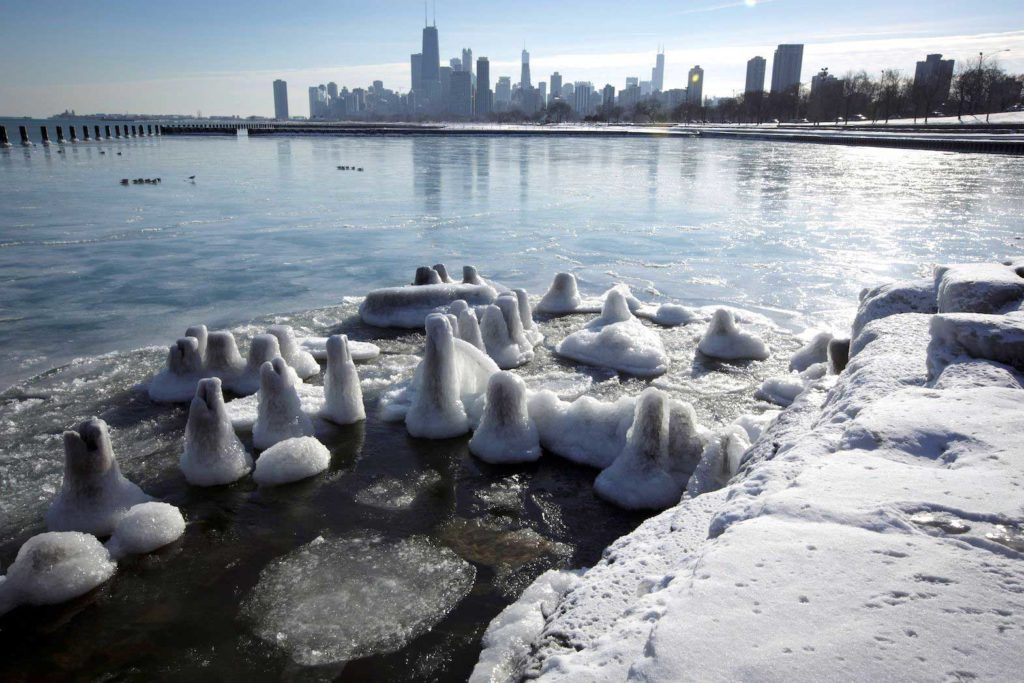U.S. brings back climate change website detailing ongoing threats

Ice covers the shore of Lake Michigan in Chicago December 12, 2013. REUTERS/John Gress/File Photo
After years of delays during the Trump administration, the EPA released its new climate indicators, which show Americans are already feeling effects on their health and safety.
Heat waves across the country are more frequent, more intense, and last longer. Wildfires are burning more land. The East and Gulf Coasts are flooding more often, while ice sheets are disappearing and sea levels are rising.
The figures are collected on the Environmental Protection Agency’s climate indicators website https://www.epa.gov/climate-indicators/climate-change-indicators-wildfires, which pulls data from more than 50 different organizations but had gone stale after Trump officials stopped updating it. In addition to releasing fresh numbers on Wednesday, the organization added new measurements including heat wave data, permafrost temperatures and residential energy use.
EPA Administrator Michael Regan called the relaunch “long overdue,” and said in a statement, “We now have additional data and a new set of indicators that show climate change has become even more evident, stronger, and extreme – as has the imperative that we take meaningful action.”
The message from the EPA is in stark contrast to its actions during the previous administration, when President Donald Trump downplayed the effects of climate change, muzzled and sidelined scientists, and scrapped initiatives to curb emissions.
Since taking office, President Joe Biden has pushed climate action toward the top of his agenda and worked to reverse many of his predecessor’s actions.
“I am really excited for the return of this information and the improvement of it,” said Gretchen Gehrke, a co-founder of the nonprofit Environmental Data and Governance Initiative. “People really lost out on being able to learn from the last four years. Not only the extreme events, but also the more subtle things.”
The most recent decade was the warmest on record since observations began in 1880, with last year the second warmest year. Alaska, the North, and the West showed the biggest changes in the United States.
Marine animals, too, are feeling the heat. The data show a steady climb in ocean temperatures, with some calculations putting 2020 at the top the charts. As oceans warm, fish and other underwater life off the U.S. coasts are shifting their range north and diving deeper to find cooler waters.
In response to the EPA’s release, Senator Sheldon Whitehouse, a Democrat, called for stronger climate action in the infrastructure bill currently being negotiated.
“The data doesn’t lie: the EPA’s new report shows society pushing nature to its limit. Either we act now, or we risk failing the critical test of 1.5 degrees Celsius of warming and lock in ever-worsening threats,” Whitehouse said in a statement, referring to the temperature threshold where scientists predict catastrophic damage. “Nature’s not waiting, why are we?”

